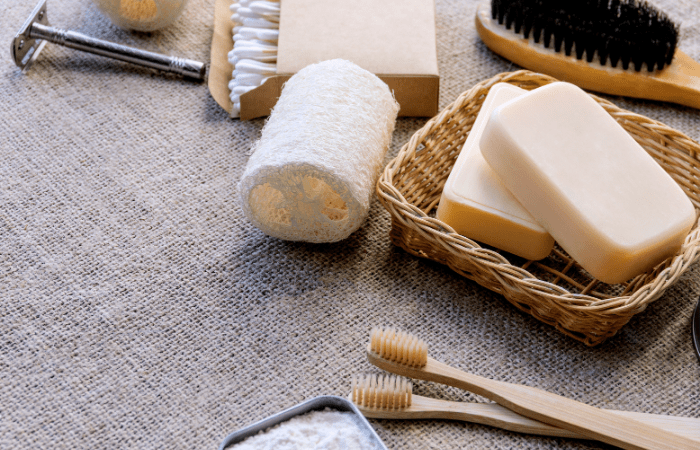July is a worldwide event where people from all over the world are encouraged to refuse to use single-use plastic. If this is your first time joining this campaign, you might feel like going plastic-free is a big challenge, but it is not as hard as you think! Here you will find everything you need to know as a beginner, what to expect and some useful advice on reducing plastic waste.
Plastic-Free July
Plastic-Free July is a call to action for individuals, communities, and businesses to actively reduce their use of plastic for a month, and ideally longer. It’s not about doing everything right all the time but about making doable changes that, when combined, create a hugely positive impact.
If you have decided to go fully organic and say no to single-use plastics, or if you are just starting with one or two changes, every effort matters.
Step 1: Consider Your Present Plastic Consumption
The first thing you need to do to transition is figure out where you are using plastic in your life. Consider items such as:
-
Plastic bags
-
Straws
-
Food packaging
-
Disposable cutlery
-
Toiletries and cleaning products in plastic containers
Once you identify these items, you will know where to start making changes.
Step 2: Switch to Plastic-Free Products with Simple Changes
The start-small approach increases your chances of staying on track and achieving your goals. Here are a few plastic-free tips and swaps for common household items:
-
Reusable Shopping Bags: Replace thin plastic bags with durable cloth bags.
-
Stainless Steel Straws: A long-lasting solution to eliminate plastic straws.
-
Beeswax Wraps: A sustainable alternative to plastic food wrap.
-
Soap Bars and Shampoo Bars: Say goodbye to plastic bottles in your bathroom.
-
Compostable Sponges or Dish Brushes: Opt for biodegradable options instead of synthetic sponges.
Many eco-friendly alternatives are available from companies like Brown Living, making it easier to transition to a greener lifestyle.
Step 3: Adopt Plastic-Free Habits
Going plastic-free isn’t just about buying new products; it’s about adopting behaviours that reduce plastic usage. Here are some practical actions:
-
Bring Your Own: Carry your own water bottle, thermos, cup, and utensils like forks, spoons, and knives.
-
Shop Smart: Choose fresh fruits and vegetables instead of pre-packed options and bring your own bags for bulk items.
-
Say No to Plastic: Politely decline plastic straws, bags, and cutlery when offered.
-
DIY Where Possible: Make your own cleaning and skincare products to avoid packaged alternatives.
A Guide to the Plastic-Free July
-
Challenges Along the Way
Breaking the habit of using plastics can be challenging. You might forget your reusable bag at home or struggle to find unpackaged products. These setbacks are normal—it’s how you handle them and persist in your efforts that matter.
-
Unexpected Wins
Positive changes will likely be noticeable quickly. Adopting an environmentally friendly lifestyle often helps cut costs, promotes healthier living, and inspires others to embrace sustainability.
-
A Shift in Perspective
Participating in Plastic-Free July will reveal how much plastic is part of daily life. It helps you make more deliberate decisions and advocate for broader organizational and societal changes.
Beyond July: Transitioning to a Life Without Plastic
Plastic-Free July is just the beginning. By developing small habits and turning them into a sustainable lifestyle, you can maintain the momentum. Here are some ideas:
-
Advocate for Policy Change: Support campaigns that aim to ban single-use plastics in your area.
-
Support Sustainable Businesses: Buy from companies committed to environmentally friendly practices.
-
Share Your Journey: Educate friends and family about avoiding plastic and invite them to join the movement.
Plastic-Free Products to Try
To make your Plastic-Free July journey easier, consider these recommended items:
-
Beeswax Wraps – A sustainable alternative to plastic wrap.
-
Stainless Steel Water Bottle – A reusable, insulated bottle for hot or cold beverages.
-
Reusable Produce Bags – Perfect for grocery shopping without plastic.
-
Natural Fiber Dish Brushes – An eco-friendly replacement for synthetic sponges.
Check out these and other sustainable products from companies like Brown Living, where functionality meets environmentalism.
Final Thoughts: Start Small, Think Big
Remember, Plastic-Free July is about progress, not perfection. Each time you use plastic-free products, participate in a plastic-free trial or adopt plastic-free habits, you are part of a global movement to protect the environment. It’s not about eliminating plastic entirely in a week, month, or year—it’s about starting the change and inspiring others to do the same. So, what’s your first move this July?



Share:
How to Celebrate World Environment Day: Activities and Ideas
The Benefits of a Plastic-Free Lifestyle: Health, Environment, and Beyond